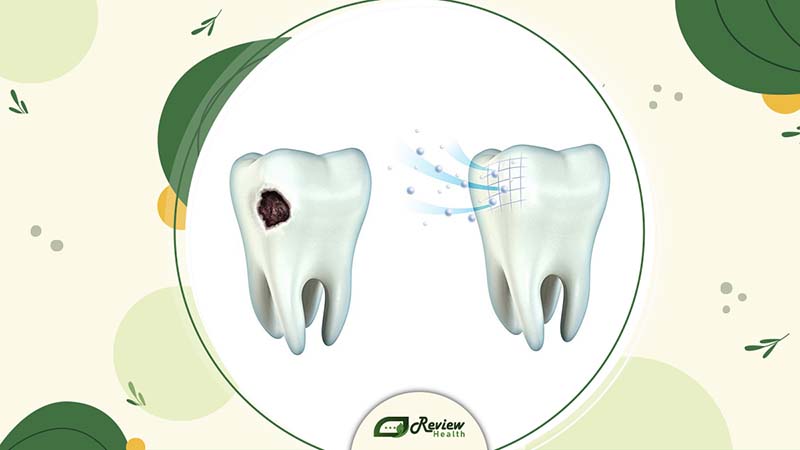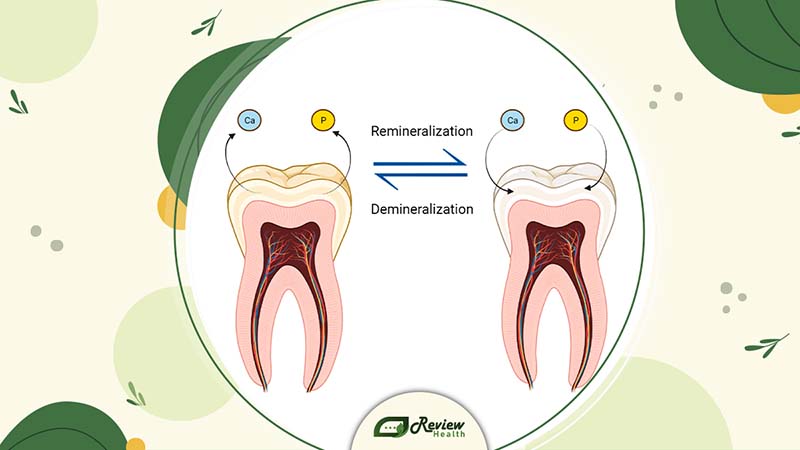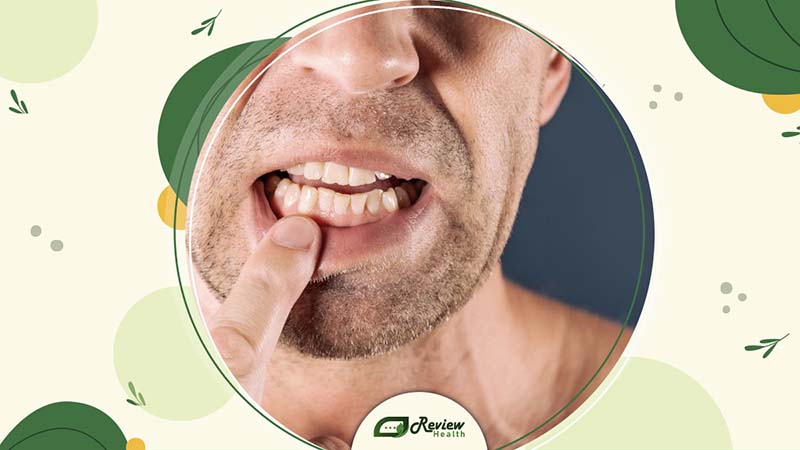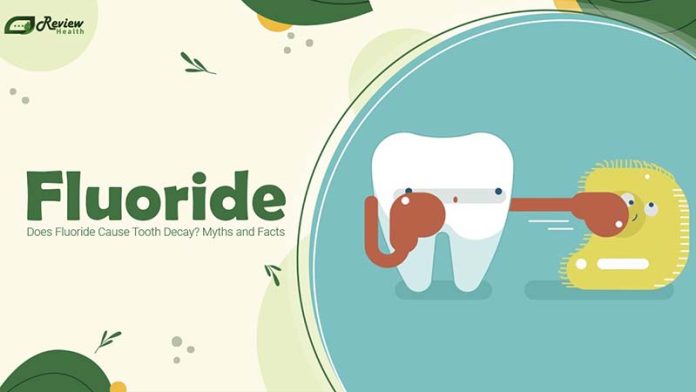Fluoride, a natural mineral found in many foods, is pivotal in maintaining oral health by fighting off decay. Addressing the common question, “Does fluoride cause tooth decay?” it is important to note that fluoride actually plays a crucial role in halting early decay and strengthening tooth enamel, establishing itself as an indispensable ally in dental care. While there are concerns about the potential harm of excessive fluoride, the small quantities found in everyday dental products like toothpaste and mouthwash are generally safe and unlikely to cause adverse effects.
Understanding how fluoride functions to prevent tooth decay is essential for keeping your mouth healthy. For a deeper understanding of fluoride’s benefits and to address prevalent misconceptions about its effects, continue reading on Review Health. Our articles provide clear, evidence-based insights to help you maintain optimal dental health
What Is Fluoride?
Fluoride is a naturally occurring mineral widely distributed in many foods, water sources, and dental products. In the field of dentistry, fluoride is highly valued for its ability to strengthen tooth enamel and significantly reduce the risk of cavities. This mineral works by remineralizing weakened areas of the tooth surface, making them more resistant to acid attacks from bacteria in the mouth.

It’s important to note that fluoride is safe and effective when used in the proper amounts recommended by healthcare professionals. Its controlled use in community water fluoridation and dental products is considered a major public health achievement for its role in improving oral health.
The Connection Between Tooth Decay and Fluoride
The relationship between tooth decay and fluoride is widely recognized in dental health. Fluoride, a naturally occurring mineral found in all water sources, including oceans, plays a crucial role in preventing tooth decay (dental caries) through several mechanisms:
- Remineralization: When consumed, fluoride aids in rebuilding (remineralizing) weakened tooth enamel and reversing early signs of decay. Foods and beverages containing sugars and starches prompt plaque bacteria to produce acids that attack enamel. Fluoride facilitates the deposition of minerals like calcium and phosphate onto the enamel, bolstering its strength and preventing cavity formation.

- Inhibition of Demineralization: Fluoride can impede or slow down the loss of minerals from tooth enamel during the demineralization process caused by acid attacks from plaque bacteria and sugars.

- Antibacterial Properties: Fluoride helps reduce tooth decay by interfering with the acid production of plaque bacteria following sugar consumption. It can be applied to the teeth in two main ways: topically through toothpaste, mouthwashes, and professional treatments, and systemically via fluoridated water and dietary supplements. Both methods are effective in promoting dental health and preventing cavities.
The widespread adoption of fluoride has significantly contributed to the reduction of dental caries prevalence, particularly in regions where fluoride is added to public water supplies, a practice known as water fluoridation. This approach ensures universal benefits across all demographics, irrespective of age, income, education, or dental care access.
While fluoride provides significant benefits in proper doses, overexposure, especially during the development of teeth, can result in dental fluorosis. This condition is typically marked by mild discolorations such as white spots on the teeth. Therefore, it is important to monitor fluoride intake closely, particularly in young children who may accidentally ingest toothpaste.
Relate article:
- Black Tooth Decay: Causes and Treatments for Black Teeth
- What Does Tooth Decay Smell Like and How Can We Effectively Eliminate Cavities Smell?
- Understanding Wisdom Tooth Decay: Symptoms, Causes, Signs identify and Pain-Free Treatment Options
- Exploring 12 Major Causes of Tooth Decay Brown Stain on Teeth You Should Know
The Benefits of Fluoride for Tooth Decay
Fluoride offers significant advantages for dental health by:
- Remineralizing Weak Enamel: Fluoride aids in rebuilding weakened tooth enamel, fortifying it against decay.
- Slowing Mineral Loss: By slowing down the loss of minerals from tooth enamel, fluoride helps maintain its strength and integrity.
- Reversing Early Decay: Fluoride has the capacity to reverse early signs of tooth decay, offering a crucial defense mechanism against cavities.

- Inhibiting Oral Bacteria Growth: Fluoride works to prevent the proliferation of harmful bacteria in the mouth, reducing the risk of cavities.
When oral bacteria metabolize sugar and carbohydrates, they produce acids that erode tooth enamel, a process known as demineralization. Weakened enamel becomes susceptible to cavity-causing bacteria.
In conclusion, Fluoride’s role in remineralizing tooth enamel not only helps prevent cavities but also reverses initial decay indicators.
Frequently Asked Questions
How Does Fluoride Prevent Tooth Decay Chemistry?
Fluoride prevents tooth decay by enhancing the remineralization process of enamel. It forms fluorapatite, a stronger and less acid-soluble compound than hydroxyapatite, the original enamel mineral. This transformation makes the enamel more resistant to acid attacks from bacteria, ultimately restoring and strengthening it.
Does Too Much Fluoride Cause Tooth Decay?
No, excess fluoride doesn’t cause tooth decay. However, overconsumption, especially in children, can lead to dental fluorosis. This condition alters enamel appearance but doesn’t contribute to decay. Severe cases may affect enamel structure and aesthetics.
Can Fluoride Reverse Tooth Decay?
Fluoride plays a crucial role in reversing early stages of tooth decay by enhancing remineralization, which replenishes minerals to the tooth enamel before cavities fully develop. However, once decay has led to physical damage, fluoride cannot reverse these effects, and dental treatments such as fillings become necessary.
How Does Fluoride Prevent Tooth Decay?
Fluoride prevents tooth decay by enhancing enamel remineralization, reducing plaque bacteria’s acid production, and forming a protective barrier on teeth, boosting their decay resistance.
Does Fluoride Toddler Tooth Decay Reversal?
Yes, fluoride can reverse early tooth decay in toddlers, much like in adults. Topical fluoride treatments are beneficial, especially for high-risk toddlers. However, professional application and monitoring are crucial due to the risk of fluoride ingestion, particularly in young children. Consulting a pediatric dentist ensures proper application and preventive measures discussion.
Conclusion
In conclusion, fluoride, a natural mineral, is extensively used in dental products to strengthen tooth enamel and prevent cavities. Additionally, many American cities enhance their water supplies with fluoride. While the levels of fluoride in drinking water are generally considered safe, it is important to be mindful of excessive exposure.
For those questioning, “Does fluoride cause tooth decay?” the answer is quite the opposite. Fluoride is actually critical in preventing dental caries. However, to responsibly manage fluoride intake and address any concerns about overconsumption – especially in young children – it’s wise to check the fluoride content in your local water supply by contacting municipal authorities. Opting for fluoride-free dental products can also be a thoughtful alternative if excessive fluoride exposure is a concern. This balanced approach ensures that the benefits of fluoride are maximized while minimizing any potential risks.

